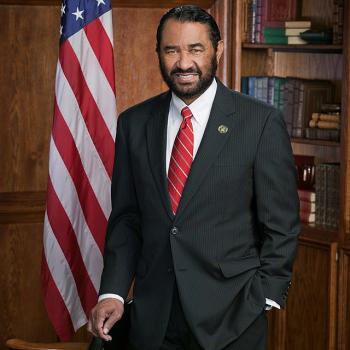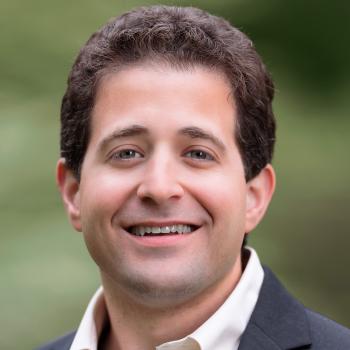Finney the lawyer became Finney the evangelist, though he maintained his dramatic courtroom flair. Eyes blazing, denunciatory voice booming, Finney's theatric preaching came off (according to one account) "like cannon balls through a basket of eggs." Finney would issue his altar call and folks would both stand up and fall over, groaning, weeping and bewailing their sin. "There can be no revival," Finney said, "without Mr. Amen and Mr. Wet-Eyes in the audience."
In addition to the altar call, Finney was responsible for other self-styled "new measures." He revamped the anxious bench—a front pew that functioned like a witness stand where wavering sinners sat and squirmed as Finney lit into them. He made it a practice of saying "you" instead of "they" when speaking of the wicked—often calling out reluctant sinners by name. He prayed in colloquial language, which many considered vulgar when addressing God. He was the first to use publicity and mass media to promote his nightly meetings where he gallingly let women pray out loud.
Jonathan Edwards, the noted New England preacher at the center of the first Great Awakening, described revivals as something that had to be "prayed down." Finney, however, believed that revivals had to be "worked up." He expressly denied that there was anything supernatural about revival. "It is not a miracle or dependent on a miracle in any sense," he insisted. "Revival is a purely [scientific] result of the right use of constituted means—as much as any other effect produced by the application of means."
I can't help but think of those times I've helped craft worship experiences designed to elicit a particular response. An emotional song here, a moving testimony there, maybe dim the lights, light a candle, display a gripping picture, stoke a little guilt—there's all sorts of techniques churches have been using for centuries ostensibly to bring people closer to God.
Finney's ideas derived from a commitment to natural theology—that is, the belief that all aspects of divine reality and truth are accessible by human reason. As it was God who endowed humans with rational faculties, it is only reasonable that we can know God by those faculties. This logic applied not only to human reason (knowing God) but also to human volition (wanting to know God). It applied to human ability, too. To Finney, the doctrines of total depravity and original sin made no sense. How can you be condemned for a sin you never committed? Moreover, how could God command you to love him and then make no provision for you to be able to do that?
Finney asked, "Does God require of us the performance of this duty, without expecting its fulfillment, merely to show us our impotency and dependence upon him? Does he require us to make ourselves a new heart, on pain of eternal death, when at the same time he knows we have no power to obey; and that if ever the work is done, he must himself do the very thing which he requires of us?... [No, this] is evidently something over which we have control; something voluntary; something for which we are to blame, and which we are bound to alter! It is evident that the requirement here is to change our moral character; our moral disposition.
"As full sanctification consists in perfect obedience to the law of God, and as the law requires nothing more than the right use of whatever strength we have, it is, of course, forever settled, that a state of perfect sanctification is attainable in this life, on the ground of natural ability."
Finney reflected the prevailing values of his culture. Jacksonian pioneer moxie emphasized democratic individualism and human potential. Finney was famous for saying how "the cannot of inability is no more than the will not." Don't blame God for something that's your fault. And don't lean on God for something that you can change yourself. As a prodigal son, it's your responsibility to wake up and smell the pig slop and get your butt home. Only then will your father welcome you back into his arms. Finney considered obedience to the moral law not as the result of salvation, but rather as the condition for salvation. Finney understood saving faith as a move anyone could make immediately without waiting for God to supply the necessary grace (though he did later describe the Holy Spirit as a necessary lure).
There are obviously problems here. Finney's take is not the Biblical gospel of grace wherein God acts despite our unfaithfulness to redirect our misshapen desires. Instead, it smacks of a merit-based gospel, a gospel of reward dependent first on you getting your act together before God gets involved. By contrast, historic Christianity teaches that we can do nothing in and of ourselves to warrant God's favor. It is God who first loves and takes the initiative in Christ "while we were yet sinners," while we are without merit, while we are without the ability to obey, while we are without reason to think we could be saved. Righteousness before God is a matter of righteousness credited as gift on account of the dying and rising of Jesus. The gospel plants a cross at its center; a message the apostle Paul would have never dared fudge.





